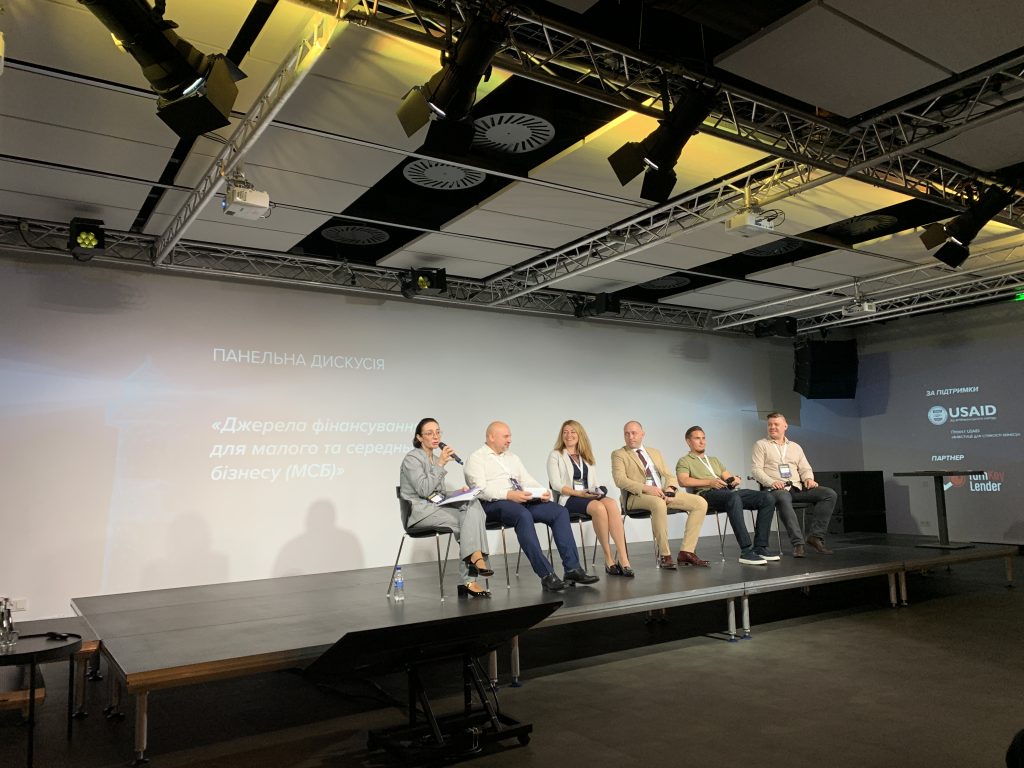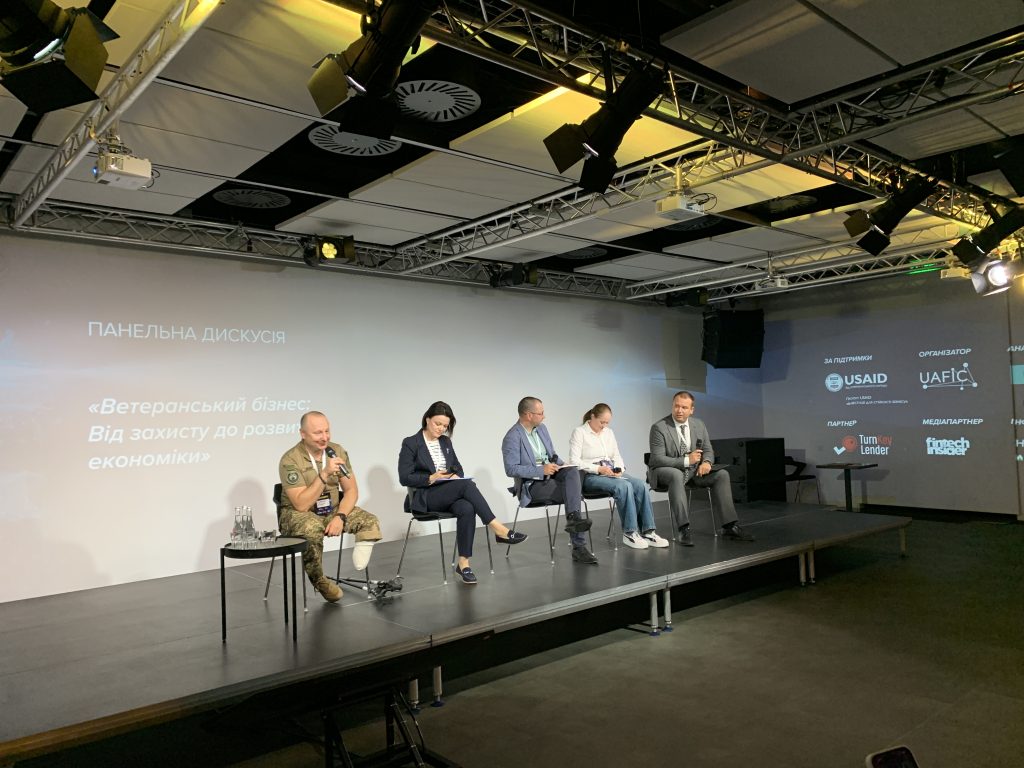The development of small and medium-sized businesses is the basis of a stable economy. And one of the most important aspects of SME development is access to financing. This, as well as the importance of financial literacy of entrepreneurs, support for veteran businesses and promising financing tools, was discussed at the Access2Finance conference, which took place on September 24 and was organized by the Ukrainian Association of Fintech and Innovative Companies with the support of the official partner of the USAID Project “Investments for Business Sustainability”.
Revival of investment financing
As Natalya Butkova-Vitvitska, a member of the board of Oschadbank, said in her presentation, this year the business faces such key challenges as uninterrupted supply of business with energy resources, insurance of assets against war risks, attraction and retention of personnel, as well as access to financing. The latter became a key issue at the panel discussion with the participation of experts.
According to Yulia Vitka, deputy head of the USAID Project “Investments for Business Sustainability”, in addition to lending, various programs are available to entrepreneurs, including factoring and leasing. There are also programs for exporters within the framework of the USAID Project “Investments for Business Sustainability”. And next year, the amount of funds under the program is expected to increase, that is, financing for entrepreneurs is available. However, Yuliya Vitka emphasized that this is not a grant, but rather investment financing or co-investment. That is, most often the funds are provided jointly with the business owner or in addition to a bank loan, and are also paid in parts, not in one tranche. In addition, a number of requirements are put forward to entrepreneurs and their implementation is monitored, including increasing production and sales, creating new jobs.
Roman Kropyvnytskyi, Director of the Department of Development of the Real Sector of the Economy of the Ministry of Economy of Ukraine, also noted that investment financing has changed the financing of working capital. He also added that, unfortunately, 75% of applications for state programs are rejected, in particular due to errors in drawing up a business plan, budget, etc.
Maksym Bondarenko, head of UkraineInvest’s attraction and support department, agreed that the level of financial education of entrepreneurs, especially micro and small ones, remains low. It is necessary to teach them how to work with documentation, how to attract investments, etc.

Factoring as a promising direction for banks and non-banks
Hleb Denysiuk, trade finance specialist of the USAID Project “Investments for Business Sustainability”, said in his presentation that the volume of factoring in the world in 2023 amounted to $4.2 trillion, in Europe – $2.6 trillion, in particular in Poland – $104 billion. Whereas in Ukraine, this figure last year amounted to $100 million, according to NBU data.
At the same time, factoring is one of the most promising financing tools in Ukraine. “It’s about access to financing, about barrier-freeness and opportunities for development,” said Hleb Denysiuk.
The problems that must be solved for the development of the factoring ecosystem in Ukraine are as follows:
- late payments
- lack of e-invoices
- insufficient number of available factoring financing programs
- insufficient awareness of small businesses about factoring
- lack of factoring IT modules in banks
- absence of a register of rights of withdrawal.
According to estimates, the potential impact of non-regulation of the industry in Ukraine may cause a loss of UAH 26-31 billion annually.
Veteran business
Serhiy Pozniak, sergeant of the National Guard and chairman of the board of the Association of ATO veteran entrepreneurs, said that 520,000 veteran entrepreneurs are ready to develop or open their own business, but need support with financing. In particular, such a tool is private veteran investment – an opportunity to invest in a veteran business and receive income.
One of the Association’s projects is Vmilodilo – a free leasing project for veterans of light-duty cars, including adapted for persons with disabilities. According to Serhii Pozniak, large Ukrainian companies, in particular leaders of the logistics industry, are interested in cooperation with the owners of such cars.
Also, the chairman of the board of the Association of ATO veteran entrepreneurs said that the ecosystem of the Association includes a school of veteran entrepreneurship, access to financing through the financial company Finstream, support and mentoring of veteran entrepreneurs and a business club.

As Nina Rogovets, deputy executive director of the Ukrainian Veterans Fund, noted, veterans want to develop their own business and are interested in various areas: agriculture, cafes and restaurants, logistics, etc.
The State Employment Service also helps veterans in business development – according to its director Yulia Zhovtyak, this includes free training, training vouchers, and microloans for business development within the framework of the eRobota program, and grants.
Banks as a business partner in raising financing
One of the panel discussions was devoted to the opportunities for SMEs provided by banks. According to Ruslan Spivak, director of corporate business at Raiffeisen Bank, both state banks and banks with private capital are interested in this. But you don’t have to limit yourself to credit programs.
According to Yulia Zhulanova, Director of the Lending and Support Department of Oschadbank, the best thing that banks can offer businesses today is a combination of grant programs with lending and risk-sharing – that is, a package of certain products.

